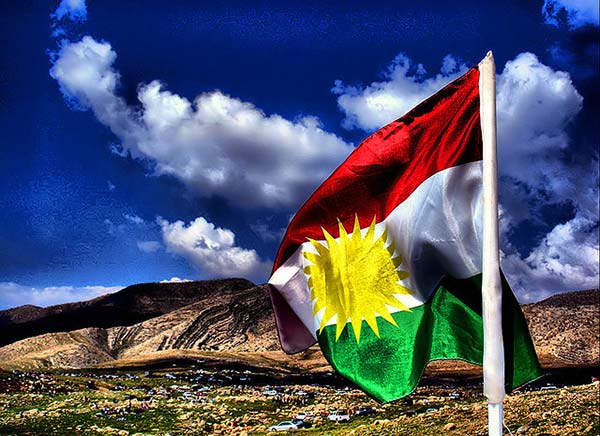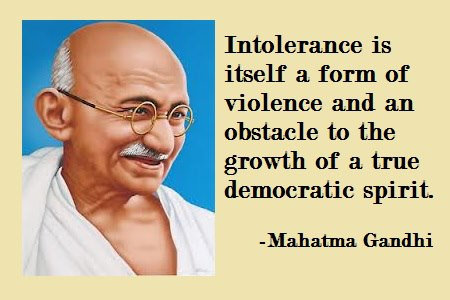Step back a few years to the illegal 2003 invasion of Iraq by the US and allies based on the lies of Tony Blair. [beautifulquote align=”right” cite=””]To initiate a war of aggression…is not only an international crime; it is the supreme international crime[/beautifulquote]Even the finger of guilt about the whole tinder box that is the middle east’s perpetual warfare cannot pointed at that, even though it certainly didn’t help the situation and was probably the primary catalyst for the Caliphate insurgency. But the embers of that already existed, the allies just threw gasoline onto it creating a power vacuum, a condition which always starts conflicts in this part of the world.
Artificial states, religious upheaval and dissent, non existent democracy and seemingly an inability of Arabs to govern themselves without a ‘strongman’ mentality does not bode well for the future, and the whole thing is a lot worse than it was thirty years ago
Wouldn’t it be great then if there was an independent nation state in the area which was based on common interests, which gave rights and equality to women that most of these states don’t, pro-West, pro-modernity and not stuck in some endless, religiously powered death spiral.
There is such a state in Israel but for many reasons it cannot have the influence required to bring some sort of order to the area. The State that I am considering is Kurdistan.
The Treaty of Sèvres in 1920 between the allies and central powers post the 1st World War promised the Kurds an autonomous region, but the treaty was short lived and the resurgence of the Turks under Mustafa Kemal (better known as Atatürk–“father of the Turks”), as much as the Kurds inability to form any semblance of a united position to argue their cause thwarted any attempt to enact the reality and form a homeland. Although the treaty was signed by the remnants of the Ottoman administration is was disavowed by the new state of Turkey and annulled. The new Treaty of Lausanne in 1923 set present Turkey’s borders
Consequently, it was the politics of the region which, seeking to appease Atatürk, forced the Kurdish lands into division among five ethnically diverse states and left the Kurds with nothing except a future of perpetual war against the Turks, genocide by the Iraqis and forced assimilation by Iran and Syria.
The Kurdish identity is one based more on geographic affiliation, rather than a deep seated sense of a common bond of ethnic identity and common heritage. However, even with the fractious tribal and linguistic divisions, since the early part of last century, and certainly within the past forty years, more tribes in the region have identified with the idea of being Kurdish and as having a common heritage as an acknowledgement that they are something other than Iraqi, Turk, Syrian or Iranian. Ethnically they can identify within themselves a common bond which sets them apart from the ethnic majority in the states in which they live. Increasingly those that identify as Kurds do so out of a sense of geographic belonging, rather than as a linguistic or ethnic group. Historically it is sense of place which has overridden linguistic, ethnic, religious and tribal divides, and it is this concept which has allowed Kurdishness to survive regional governments attempts to reduce the Kurds attempts to identify themselves as one coherent, cultural whole.
And that is a major difference in the area, the Kurds see themselves as Kurds first and that difference is reflected in their societal attitudes.
Religious Tolerance:
Kurds are predominantly Muslim but other religions also include include Judaism, Christian and Zoroastrian.
Kurdish people, and Kurdish Muslims in particular, are widely recognized to be one of the few cultures in the Middle East that truly practice religious tolerance. In 2012, the government of Iraqi Kurdistan declared that its schools would be religiously neutral. Schools will will teach the great religions of the world on an equal basis but will not press any one religion upon students. This makes Kurdistan the only region in the Middle East other than Israel in which the religions of the world are taught on an equal basis in the public schools but no one religion is given preference.
Gender Equality:
It isn’t perfect yet, but many would argue that it isn’t perfect in the West either. Regardless the situation in Kurdistan is light years ahead of anywhere else in the middle east. The Democratic Union Party of Rojava issued an equality decree, on November 10th 2014, to increase women’s participation in law making, but also to implement the needs and will of women into Kurdish legislation. In a complete revolution from prevailing attitudes in the area they have also declared:
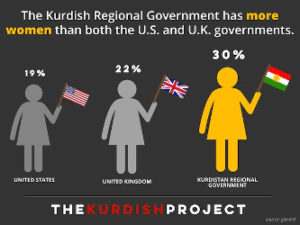
- Honour killings — now considered punishable crimes against women and society,
- Under-age and forced marriages are outlawed
- Women’s and children’s rights must be recognized, protected and implemented
- Female circumcision – banned and punishable by law
- Polygamy – banned, men who have more than one wife are excluded from all organizations and committees.
- Equality between men and women
The fight against ISIS:
While the Arabs were being routed by the murderous Caliphate the Kurds stood their ground, they have been fighting ISIS in Iraq and Syria with some notable successes despite the feckless attitude of the Turks.
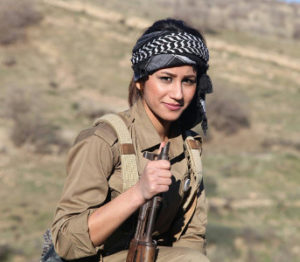 ISIS has lost almost all its territory thanks mostly to Iraqi Kurdish Peshmerga and YPG ground operations backed by intense US-led coalition bombing. They are seen by the US as the only ground force effective in the fighting.
ISIS has lost almost all its territory thanks mostly to Iraqi Kurdish Peshmerga and YPG ground operations backed by intense US-led coalition bombing. They are seen by the US as the only ground force effective in the fighting.
The Turks came, belatedly into the fight and immediately showed their true intent when instead of attacking ISIS attacked Kurdish sites. At least 20 Kurdish soldiers were killed in Turkish air strikes targeting Yazidi Kurdistan Worker’s Party (PKK) allied sites in Sinjar in Iraq, and the Kurdish Syrian People’s Protection Units (YPG) in north-east Syria.
In December of 2014, the Peshmerga led an offensive against ISIS that ultimately ended the siege of Mount Sinjar, and liberating hundreds of Yazidi from the ISIS threat..
During the siege, ISIS killed countless Yazidi men, and forced many Yazidi women to marry Islamic fighters. Nine Yazidi mass graves have been found, and eight Yazidi shrines have been destroyed.
The Kurdish Peshmerga are still defending Yazidis from the Islamic State in Sinjar.
Self determination:
Self-determination is the legal right of people to decide their own destiny, it is a core principle of international law enshrined in the United Nations Charter and the International Covenant on Civil and Political Rights as a right of “all peoples.”[beautifulquote align=”left” cite=””]
All peoples have the right to self-determination. By virtue of that right they freely determine their political status and freely pursue their economic, social and cultural development
[/beautifulquote]
The Kurds had the opportunity to combine and form a state (1919) but they were too naïve, immature, and fractious. Kurdish society is traditionally based upon tribal affiliations, and this has caused, over the past ninety years, factional squabbles, splits and even open warfare. But things are a lot different today than they were then.
Conclusion:
The Kurds number about 30 million and are the largest ethnic group in the world to be stateless and they intend to hold a referendum on the question of independence later in 2017. A independent Kurdish state would be a powerful bulwark against regional disorder and a solid, pro-Western ally in the area. 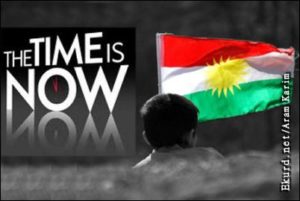 They have shown that where the Kurds are in control there is stability and peace. During the Iraq war from 2003 to 2013, not a single US soldier was killed or wounded in the Kurdish region. Independence would be good for them and for the world’s most troubled of regions. It would also realize the Kurds’ desire for long-delayed historic justice.
They have shown that where the Kurds are in control there is stability and peace. During the Iraq war from 2003 to 2013, not a single US soldier was killed or wounded in the Kurdish region. Independence would be good for them and for the world’s most troubled of regions. It would also realize the Kurds’ desire for long-delayed historic justice.
It is an idea whose time has come and the international community should embrace it. The US is happy to use the Kurds in the fight against ISIS and they of all nations should recognise the Kurds rightful claim to be sovereign.
It anything good is to come from the Iraq wars and the destructive years of ISIS an independent Kurdistan would be a good start.
